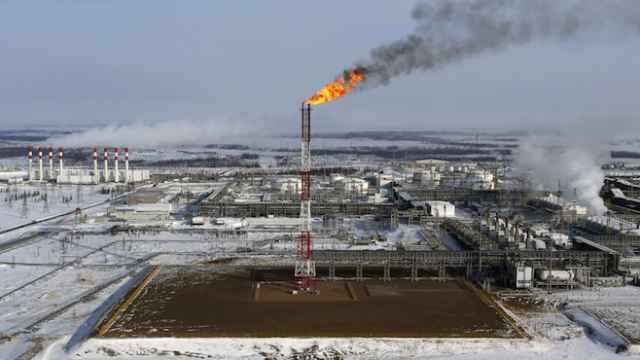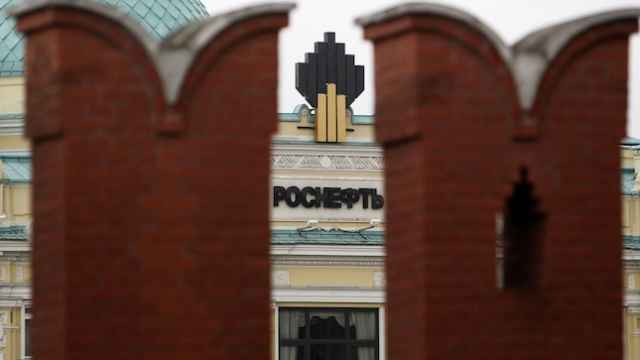Russian companies, spurred by healthy profits, have sharply raised sales of vital motor fuel to Ukraine this year, while at the same time also supplying the area of the country held by pro-Moscow separatists.
Liquefied Petroleum Gas (LPG) use in Ukraine as a much cheaper alternative to gasoline rose 17 percent in 2014 from the previous year. Ukraine is now heavily dependant for LPG on Russia, which has overtaken Kazakhstan as its main supplier. Despite the conflict in east Ukraine, trade continues, albeit with friction, as Kiev is reliant on Russian gas and exports agricultural commodities to its neighbor.
LPG exports from Russia to Ukraine, including the self-proclaimed Donetsk People's Republic (DNR) and Luhansk People's Republic (LNR) held by the separatists, rose by 72 percent from January to April 2015, calculations by Reuters showed.
Sales totaled 106,522 tonnes compared with 61,810 tons in the same period last year, according to the calculations, based on customs statistics.
Western governments have imposed sanctions on Moscow over the conflict in Ukraine but the companies that supply LPG to Ukraine say their operations are lawful.
"The policy of every company is: 'You can postpone a war, but never a lunch'," said one of the traders. "No one is going to let go of their profits."
The main LPG exporters from Russia are: Rosneft — 58 percent of total volume; Gazprom — 16 percent; United Petrochemical Company, owned by Bashneft, — 13 percent; Sibur — 5.0 percent; TAIF-NK, Surgutneftegas and Forteinvest — 2 percent each.
A Sibur subsidiary, Sibur International, made railroad LPG shipments to Ukraine in January-February 2015, but the company does not think increased LPG supplies to Ukraine is a trend.
"Recent LPG supplies to Ukraine (sale at the border) were in January-February 2015. Ownership of the product passed from Sibur to buyers on the Russian-Ukrainian border," Sibur's press service said, adding that the customers were then in charge of transportation and delivery to terminals on Ukrainian soil. Gazprom, Rosneft and Bashneft could not be reached for comment.
LPG shipments by oil tank trucks through Russian road checkpoints at Gukovo and Donetsk began in winter 2015, according to reports from the Organization for Security and Cooperation in Europe (OSCE).
"(OSCE) observers saw oil tank trucks, with the Russian inscriptions 'propane' and 'flammable'," that crossed the border in both directions through both road checkpoints," starting at the beginning of February this year, according to OSCE reports.
LPG supply by oil tank truck shipments from Russia to Donetsk and to Luhansk provinces (including DPR and LPR) began in late 2014 and increased in January-April 2015, according to Russian customs statistics.
The volumes were: 148 tons in January, 1,444 tons in February, 2,612 tons in March and 3,262 tons in April. LPG export shipments in oil tank trucks from the Rostov and Belgorod regions to the Donetsk and Luhansk provinces (including the DNR and LNR) were about 7,500 tons in January-April 2015 vs about 150 tons in 2014, according to the Reuters data.
Marginal Market
LPG supplies to Donetsk and Lugansk are attractive due to the high propane prices at fuel filling stations in the regions compared to the nearby Russian region of Rostov.
In addition, LPG supplies to the DNR and LNR from within Ukraine have been blocked and some of the largest fuel filling networks, such as Parallel, is not operating, pushing prices up further at fuel filling stations.
"Only a few stations are working. Yes, the major networks have closed, but some fuel stations work," said one market participant.
Russian exporters have supplied LPG from Russia to the Donetsk and Luhansk regions through little-known intermediary companies.
The main volume of shipments comes from Gazprom (Orenburg GTP, Surgut CSP and Astrakhan GPP) — 47 percent; Sibur (Tobolskneftehim and Nyagangazpererabotka) — 28 percent; Surgutneftegaz (Surgut UPG) and Rosneft (Ryazan Refinery, Novokuibyshevskaya petrochemical company and Zaikinskiy GPP) each have 13 and 10 percent, respectively.
Payments between the contracting parties take place in cash in Russian rubles and LPG transportation is handled by Russian and Ukrainian oil tank trucks, according to market participants.
Russian suppliers, attracted by the high-yield Ukrainian market, have been competing with firms from Belarus and Kazakhstan, their partners in a Customs Union.
Belarus and Kazakhstan's share in LPG supply to Ukraine in 2014 dropped dramatically. Kazakhstan's share fell to 34 percent (164,000 tonnes) from 41 percent and Belarus' share sank to 15 percent (72,000 tonnes) from 22 percent in 2013, respectively.
Their share was filled by Russian companies, particularly Rosneft (notably the Novokuibyshevskaya petrochemical company) and United Petrochemical Company (UPC) plants, owned by Bashneft and Gazprom.
LPG railway supplies from Russia to the domestic Ukrainian market went through the following border crossings, according to Russian railway data):
· Solovey (Belgorod region, Russia) / Topoli (Kharkov region, Ukraine) — 65 percent of total rail supply;
· Suzemka (Bryansk region, Russia) / Zernovo (Sumy region, Ukraine) — 31 percent;
· Krasniy Hutor (Belgorod region, Russia) / Kazachia Lopan (Kharkov region, Ukraine) — 4 percent.
Last year, small amounts of liquefied natural gas were supplied to Ukraine through the Uspenskaya border crossing (Russia's Rostov region ) /Kvashino Ukraine's Donetsk region), but the crossing stopped working in the middle of 2014.
The Donetsk and Luhansk regions, which include areas under the control of the DPR and the LPR, consumes 200,000-250,000 tonnes of LPG per year, traders estimated.
A Message from The Moscow Times:
Dear readers,
We are facing unprecedented challenges. Russia's Prosecutor General's Office has designated The Moscow Times as an "undesirable" organization, criminalizing our work and putting our staff at risk of prosecution. This follows our earlier unjust labeling as a "foreign agent."
These actions are direct attempts to silence independent journalism in Russia. The authorities claim our work "discredits the decisions of the Russian leadership." We see things differently: we strive to provide accurate, unbiased reporting on Russia.
We, the journalists of The Moscow Times, refuse to be silenced. But to continue our work, we need your help.
Your support, no matter how small, makes a world of difference. If you can, please support us monthly starting from just $2. It's quick to set up, and every contribution makes a significant impact.
By supporting The Moscow Times, you're defending open, independent journalism in the face of repression. Thank you for standing with us.
Remind me later.





